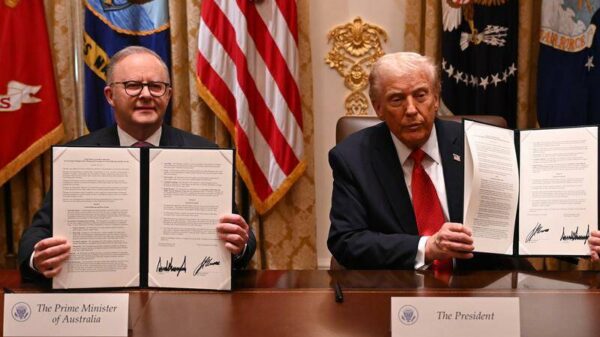UPDATE: The University of Newcastle has taken a significant step by applying to the Fair Work Commission (FWC), signaling a potential shift towards arbitration in its ongoing negotiations with the National Tertiary Education Union (NTEU). This development comes after the university reportedly abandoned good faith negotiations amid claims from union officials that management is prioritizing confrontation over collaboration.
According to the NTEU, negotiations have been ongoing for six months, with the university’s recent application marking a pivotal moment in the bargaining process. NTEU General Secretary Damien Cahill has criticized the university’s approach, labeling it as “aggressive industrial tactics designed to avoid genuine negotiation.” He expressed concern that the university is “running to the Fair Work Commission rather than staying at the bargaining table,” indicating a lack of faith in its executives’ ability to reach a fair agreement.
In response, UoN Chief People and Culture Officer Martin Sainsbury stated that the application to the FWC is intended to facilitate negotiations, not derail them. He emphasized that this step reflects a commitment to a timely resolution, acknowledging that several key matters remain unresolved. “We know our staff are seeking a timely resolution to this round of bargaining,” Sainsbury noted.
As tensions rise, NTEU members plan to take action by staging a half-day strike on October 26, 2023. This escalation is a direct response to what the union describes as a “lack of progress” in negotiations, particularly as the university prepares to implement budget cuts amounting to $20.6 million. These cuts threaten nearly 1,800 jobs across eight universities in New South Wales, adding urgency to the union’s demands for fair pay, workload regulation, and flexible work provisions.
The university’s application to the FWC is a prerequisite for seeking independent arbitration after nine months of negotiations. Cahill has expressed that the university’s tactics echo previous disputes, stating, “The University of Newcastle seems determined to pursue confrontation by deploying the same failed playbook as they did last time.”
The NTEU claims that the university’s approach indicates a willingness to escalate tensions rather than engage in constructive dialogue with staff. This move is particularly concerning for union members, who are advocating for better pay and working conditions at a time when job security is increasingly precarious.
As negotiations stall, the university maintains that it is committed to “continuing genuine and good-faith bargaining,” despite only 10 percent of its staff being NTEU members. The unfolding situation highlights the broader challenges facing educational institutions across Australia, as they navigate budget constraints and workforce stability.
Watch for further developments as both sides prepare for the upcoming strike and the potential for arbitration in the coming weeks. The impact of these negotiations will resonate beyond the university, as it reflects a larger crisis within the education sector, affecting thousands of workers and students alike.































































